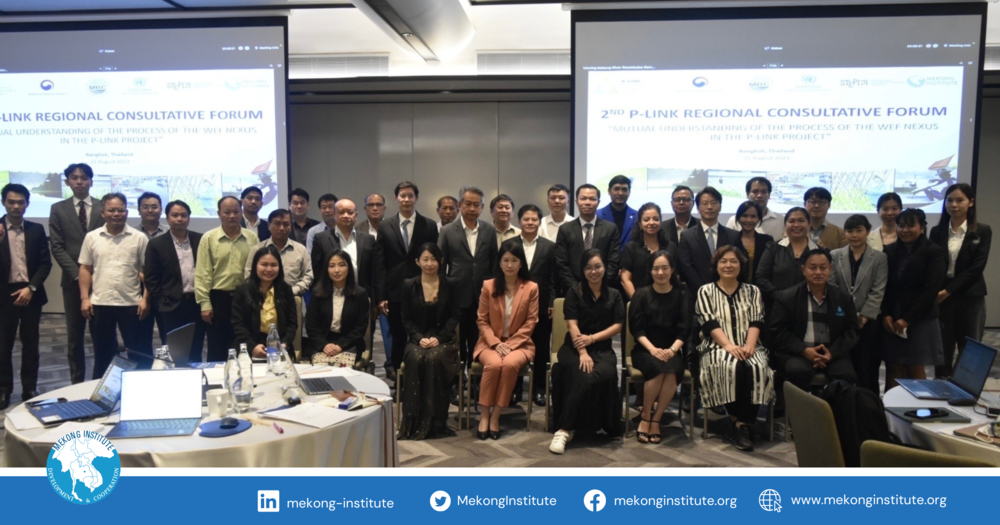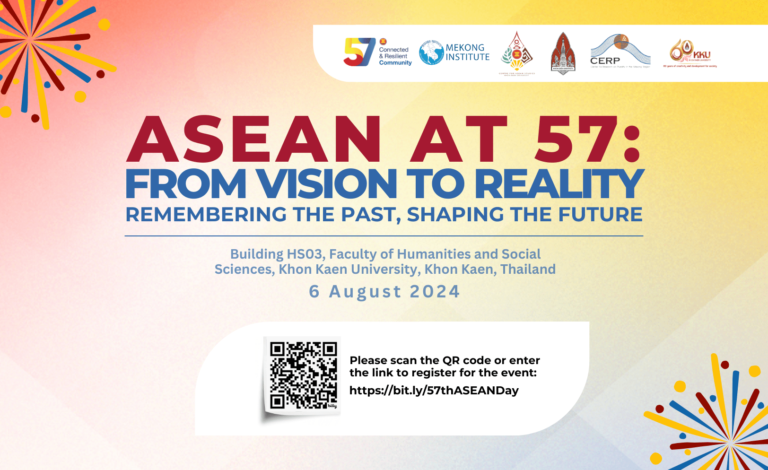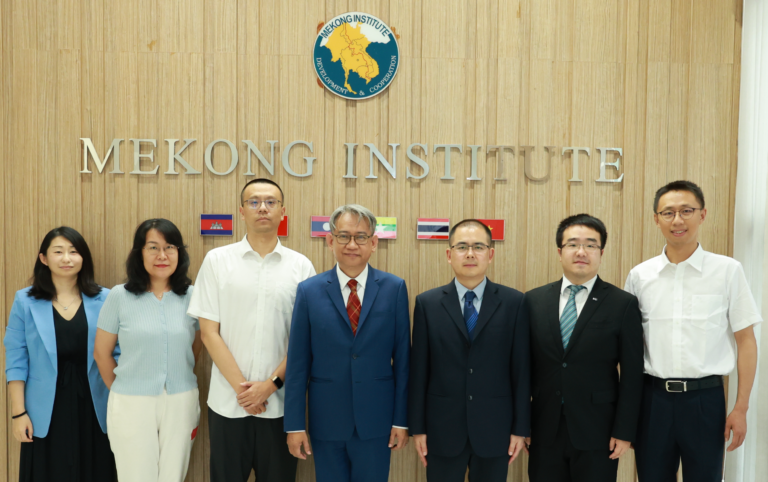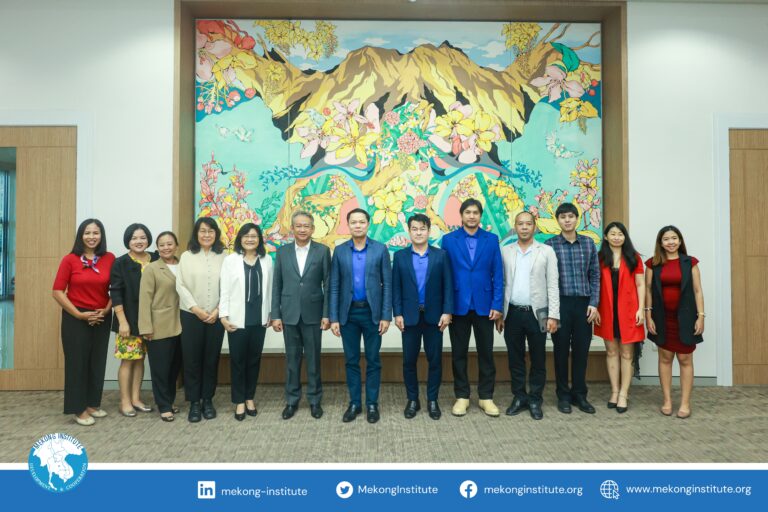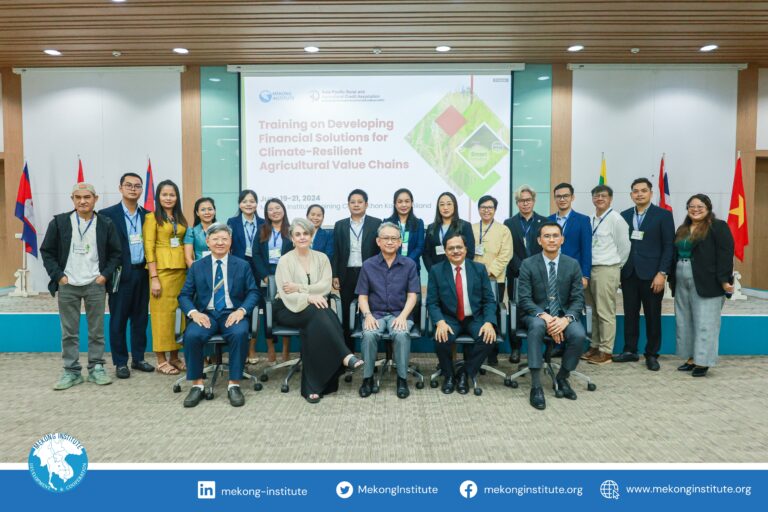Bangkok, August 31, 2023 – As part of the effort to explore integrative and multi-sectoral approaches to improve disadvantaged populations’ access to water, energy, and food in the Lower Mekong River Basin (LMB)[1], Mekong Institute together with partners from the United Nations Office for South-South Cooperation (UNOSSC), the Mekong River Commission Secretariat (MRCS), the Science and Technology Policy Institute (STEPI), and other stakeholders convened in a 2nd Regional Consultative Forum on August 31, 2023.
Following the series of initial forums[2] held last year, the event gathered 40 delegates from member countries, implementing parties, and other stakeholders of the Triangular Cooperation Project on Sustainable Development in the Lower Mekong Basin based on the Water-Energy-Food (WEF) Nexus, also known as the “Republic of Korea (RoK) – UNOSSC Facility Phase 3” or P-LINK. The forum updated stakeholders on the progress of the five-year project and aimed to foster networking among its key players.
Within the framework of P-LINK, member countries such as Cambodia, Lao PDR, Thailand, and Viet Nam are committed to crafting and carrying out national pilot projects to advance the overarching objective of enhancing access to water, food, and energy for disadvantaged communities.
The consultative forum served as a platform to build a common understanding of how the WEF nexus will be incorporated into the pilot projects per country, which are scheduled for launch in the third quarter of 2023. The event enabled in-depth discussions on designing and structuring the projects, focusing on community needs, stakeholder engagement, alignment with the Basin Development Strategy , technical solutions, and the formulation of tangible action steps.
STEPI and MI presented knowledge products on WEF Nexus-related initiatives in the LMB and other regions, encouraging better integration of the WEF approach into the in-country projects. This would facilitate culling out of lessons learned from previous experiences.
As an implementing party of P-LINK, MI provided an overview of the capacity-building approach and information on the detailed assistance to the national pilot teams during the implementation.
Before the forum, MI and the UNOSSC, the project’s lead implementer, held a bilateral meeting on August 30, 2023. Mr. Suriyan Vichitlekarn, MI Executive Director, provided the UNOSSC with updates on the progress, challenges, and lessons learned from MI’s involvement in the project.
Ms. Dima Al-Khatib, Director of UNOSSC, thanked MI for its commitment and contribution to the project and sought recommendations on how to expedite its implementation and efficiently achieve its goals.
Mr. Suriyan and Ms. Dima explored other potential collaborations, such as replicating the achievements of P-LINK in other contexts and exploring South-South triangular cooperation projects among GMS countries.
P-LINK is a 5-year project funded by the RoK’s Ministry of Science and ICT (MSIT). The UNOSSC leads the project implementation in partnership with other institutions including the MRCS, MI, and the STEPI of the RoK.
[1] The Lower Mekong River Basin is made up of the Northern Highlands, the Khorat Plateau, the Tonle Sap Basin and the Mekong Delta. It covers Thailand, Lao PDR, Cambodia, and Viet Nam. Mekong River Commission
[2]www.mekonginstitute.org/news-activities/news-details/2022/11/29/mi-joins-three-stake/
[3]www.mrcmekong.org/assets/Publications/BDS-2021-2030-and-MRC-SP-2021-2025.pdf


